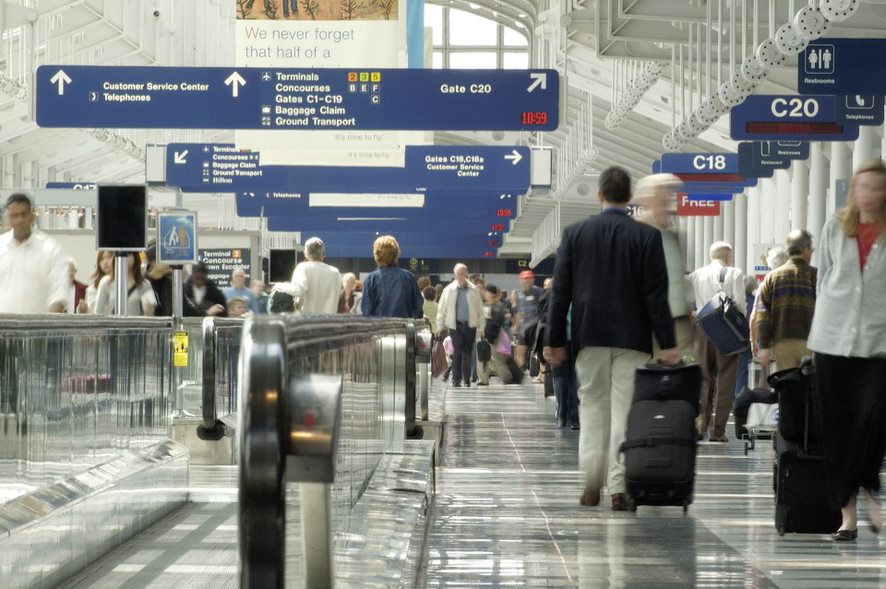During the past few months, the International Air Transport Association (IATA) has been at the forefront of the air transport industry’s efforts to recover from the significant impact of the COVID-19 crisis.
The association has undertaken a plethora of initiatives to support the industry – such as the creation of a new framework for multi-layered biosafety measures, which ultimately became part of the International Civil Aviation Organization’s (ICAO) Take-Off Recommendations; and advocating governmental financial relief for the sector, including direct financial aid through cost reductions, tax deferral, waiving of aircraft parking fees, as well as the waiver of the 80/20 slot rule at some major airports.
So, when FTE recently caught up with IATA’s Head of Passenger Process & Facilitation Céline Canu, we were keen to find out more about the association’s views on restoring passenger confidence, the importance of COVID-19 testing, and the making of a new contactless passenger app.
FTE: What are IATA’s views on the key steps to restarting the industry?
Céline Canu: As an industry we have devised the necessary protocols to operate safely during the pandemic and thus ensure that aviation does not become a vector for spreading the virus. There is however a limit to what we can do, and we now need the governments to play their part to restore confidence. One of the biggest challenges are the ever-changing immigration and quarantine regulations put into place by governments. It is hard to stimulate demand when travellers are faced with ever-changing rules and regulations.
FTE: So, in what ways is IATA supporting the industry’s efforts to boost all-important consumer confidence, which has taken a hit in recent months?
CC: We have been at the forefront in devising the biosafety protocols to ensure that air travel does not become a vector for spreading COVID-19. As part of this, educating the travelling public about air quality on board airplanes has been a focal point. The design of the onboard air-conditioning systems and the use of HEPA filters provides for air quality that is more in line with that of an operation room in a hospital than anything else. Furthermore, highlighting the new cabin cleaning protocols has also been at the forefront of our communication efforts.
FTE: What are IATA’s views on COVID-19 testing, health passports and new screening methods?
CC: Testing can be a way of re-opening borders and lifting quarantine restrictions. With current testing technology (mainly PCR), this should ideally be done pre-departure and off-airport. As testing methods develop, performing antigen tests at airports on departure could provide the best way forward in the future. However, the technology for doing this at the scale required is not yet available. In any case, standards on documenting test results and making these available in a mutually acceptable form between countries is something the relevant authorities need to work on.
FTE: How important a role will technology play in helping the industry deliver a safe, sanitised, touchless experience?
CC: The sanitisation of the airport equipment is a pivotal element of the restart strategy. While it’s not always enough to fully restore passengers’ confidence investing in contactless solutions is required. IATA is currently speeding up the production of new standards to allow the remote use of self-service kiosks from mobile devices. This is a first step. But obviously more work is involved in the development of standards to enable IATA One ID – a concept that allows passengers to be biometrically recognised by airlines, airports and governments all along their journey. While it provides more convenience to passengers, the automation of the ID authentication and verification increases the security governments’ need to facilitate the movement of passengers across their borders.
FTE: I understand that IATA is currently working on an upcoming contactless travel application. Would you be able to share some more details around this initiative?
CC: As IATA is testing some elements of One ID, a mobile app appears to be a critical tool for passengers to regain control over their data and share it as they wish with airlines and or governments. We are currently developing a solution to help passengers capture their passport information that can then be shared to facilitate the process end-to-end.
FTE: Could you provide an update on the IATA NEXTT initiative? How can the industry move beyond legacy systems and make progress with the implementation of initiatives such as airport offsite processing and automation?
CC: The COVID-19 pandemic and the impacts that it has had on travel, passenger trust, and airport operations have further confirmed the validity of and need for the concepts of NEXTT. The industry has greater focus on a flexible approach and resilience with a high impetus to ensure cost efficiency. In turn, this brings an urgency to put available technology to use to provide this flexibility and unlock the full benefits which are achieved with global coordination rather than isolated approaches. More than ever close cooperation between the airlines, airport operators and governments is vital. Airlines will need to revise their current passenger processes, airport operators may need to assist in redesigning airport facilities, including gate areas, and governments may have to adapt applicable rules and regulations. Having a common vision to drive these changes was the basis of the joint IATA-ACI NEXTT initiative. Promoting best practice use of technology via the NEXTT initiative will see more widespread advancements of off-airport processing activities, improvements in customer experience and efficiency. Advanced processing will also facilitate the access to trusted real-time data and the implementation of contactless solutions to limit the interactions between passengers, airlines, and airports…



